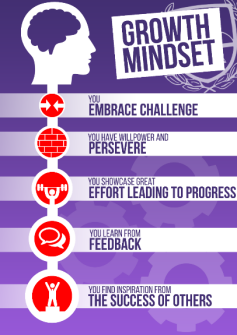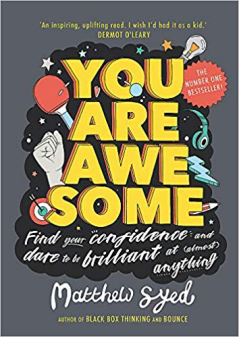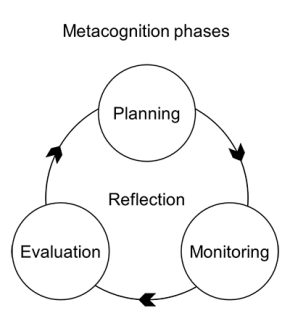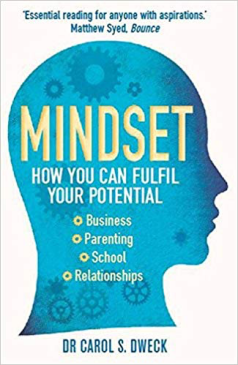Growth Mindset & Metacognition
Growth Mindset At Chosen Hill School
Chosen Hill School is committed to developing a growth mindset in all its students and staff. With a growth mindset students embrace tough challenges, develop intrinsic motivation as well as skills of collaboration.
 |
 |
|
All Year 7 students take part in a series of growth mindset lessons based on a book called ‘You are Awesome’ by Matthew Syed. The book looks at all aspects of growth mindset, including how to develop it in yourself. Students also begin to understand:
-
How the brain learns (neuroplasticity)
-
Famous failures and the importance of failure.
-
How to effectively learn from feedback in lessons.
-
The language of growth mindset.
-
Ways of thinking that promote a growth mindset in all lessons.
-
The Power of Yet and FAIL.
To develop a growth mindset we also encourage students to embrace challenges and see ‘mistakes’ as practice and a route to understanding.
-
We remember it is always OK to make mistakes – we learn from them.
-
We never give up. We try a different approach or use a different strategy.
-
We learn from each other – students often make the best teachers.
-
We do not compare ourselves with others, but we do learn from others.
-
We challenge ourselves – which really helps us make progress.
-
We take risks – we do not limit ourselves by taking the easy option.
-
We join in as much as possible – and we learn much more by being involved.
-
We remember that mastering something new feels so much better than doing something you can already do.
-
We remember that the brain is making new connections all the time – the only thing you need to know is that you can learn anything.
Metacognition
Research shows that when students improve their metacognitive skills, they are more likely to embrace a Growth Mindset and learn from mistakes and feedback.
What is metacognition?
Metacognition is a higher order thinking process which helps differentiate humans from other animals. It is also referred to as ‘thinking about one’s thinking’ and was a term first put forward by American Developmental Psychologist John H. Flavell in 1976. Put more simply, it describes the processes involved when learners understand how to plan, monitor, evaluate and make changes to their own learning behaviours to help them achieve a goal. This means they have control of their own cognitive performance.

Why is metacognition important?
Using metacognition allows a person’s learning to be fully understood. This then means that information gets moved from their working memory to their long-term memory.
Teaching metacognitive strategies gives students the skills to ‘drive their brains’ and become active and self-directed learners
What we will be doing at Chosen Hill School to improve Metacognition
At Chosen Hill School, we are in the process of weaving metacognitive strategies into all Schemes of Learning across all subjects.
Students will also be learning about metacognition, where they currently are in terms of understanding their own learning and learning different metacognitive strategies they can use. This learning and review will take place during lessons, but also through a sequence of assemblies and off-curriculum activities across the year.
Metacognitive Strategies
There are many different metacognitive strategies that a learner can use, and parents can help their children develop these at home. There are a few examples discussed below:
Further Reading on Growth Mindset and Metacognition:
Carol Dweck Mindset
Angela Duckworth Grit
Matthew Syed Bounce


